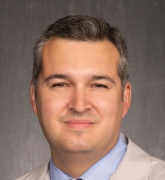Disparities in Access to Musculoskeletal Care: Narrowing the Gap: AOA Critical Issues Symposium. Journal Article
Local Library Link: Find It @ Loyola
| Authors: | Salazar, DH; Dy, CJ; Choate, WS; Place, HM |
| Article Title: | Disparities in Access to Musculoskeletal Care: Narrowing the Gap: AOA Critical Issues Symposium. |
| Abstract: | The current health-care system in the United States has numerous barriers to quality, accessible, and affordable musculoskeletal care for multiple subgroups of our population. These hurdles include complex cultural, educational, and socioeconomic factors. Tertiary referral centers provide a disproportionately large amount of the care for the uninsured and underinsured members of our society. These gaps in access to care for certain subgroups lead to inappropriate emergency room usage, lengthy hospitalizations, increased administrative load, lost productivity, and avoidable complications and/or deaths, which all represent a needless burden on our health-care system. Through advocacy, policy changes, workforce diversification, and practice changes, orthopaedic surgeons have a responsibility to seek solutions to improve access to quality and affordable musculoskeletal care for the communities that they serve. |
| Journal Title: | The Journal of bone and joint surgery. American volume |
| Publisher: | Unknown |
| Date Published: | 2019 |
LUC Authors
-
 42
42Salazar
Related LUC Article
